Photography by Richard Giordano
Being on the road full-time means I’m in a constant state of trip planning. The process has become so natural it runs on autopilot in the background, between fuel station visits, grocery shopping trips, and scrolling the Park4Night app for some creature comforts and facilities.
I love gathering tidbits about everything overland-related—visas, temporary import permits, a stellar cafe, or a long desert track—all in an attempt to understand and eagerly anticipate what lies ahead. Most of the time, I don’t mind that the research process takes hours, while at other times, information overload is real. The Information Age means almost everything we want to know is at our fingertips, and sometimes, the best bet is just to shut it all down and go in without a clue.
Perhaps you have an upcoming overland trip in mind, or maybe you’re venturing further afield and going international. Whether it’s a weekend venture or a monthlong escape, I hope these tips offer another way to look at planning your next far-flung adventures.
Think Outside the Box When it Comes to Research
From satellite imagery to our well-loved guidebooks, we all have our favorite trip-planning resources. I use a wide variety of maps, travel literature, social media platforms, blogs, and apps to amass information, and this selection often leaves me well-prepared and informed. But when I have a sliver of extra time—before, during, or after the trip—I enjoy mixing fiction and non-fiction books or audiobooks about the destination. Laurie Lee’s I Walked Out One Midsummer Night Morning shared a young man’s perspective on walking from England to Spain just before the Spanish Civil War, while Kevin Fedarko’s The Emerald Mile took me on a wild ride down the Colorado River.
Cookbooks can provide fantastic insights into the local food culture, including tips on what to buy at markets, where to eat, or what a region is well-known for. I recently borrowed Morocco: A Culinary Journey by Jeff Koehler via my Libby library app and was pleased to discover the author’s on-the-ground recommendations, including which brands of couscous to buy from local markets (Tria or Dari, for those interested), definitions for common products such as smen (clarified butter) and ras el hanout (a North African spice mix), and what to order during Ramadan (harira—a hearty tomato-based soup).
Podcasts are perfect for long driving days as the good ones are both entertaining and informative. I listened to the All Things Iceland podcast to prepare for an Expedition Overland project in Iceland. The show, hosted by Jewells Chambers, offers easily digestible and interesting tidbits on the country’s history, cultural customs (do Icelanders believe in elves?), and the 411 on F-roads. Heading further east, British Scandal has 38 seasons to choose from and is hosted by British comedians Alice Levine and Matt Forde if you’re keen on UK history and fancy a laugh.

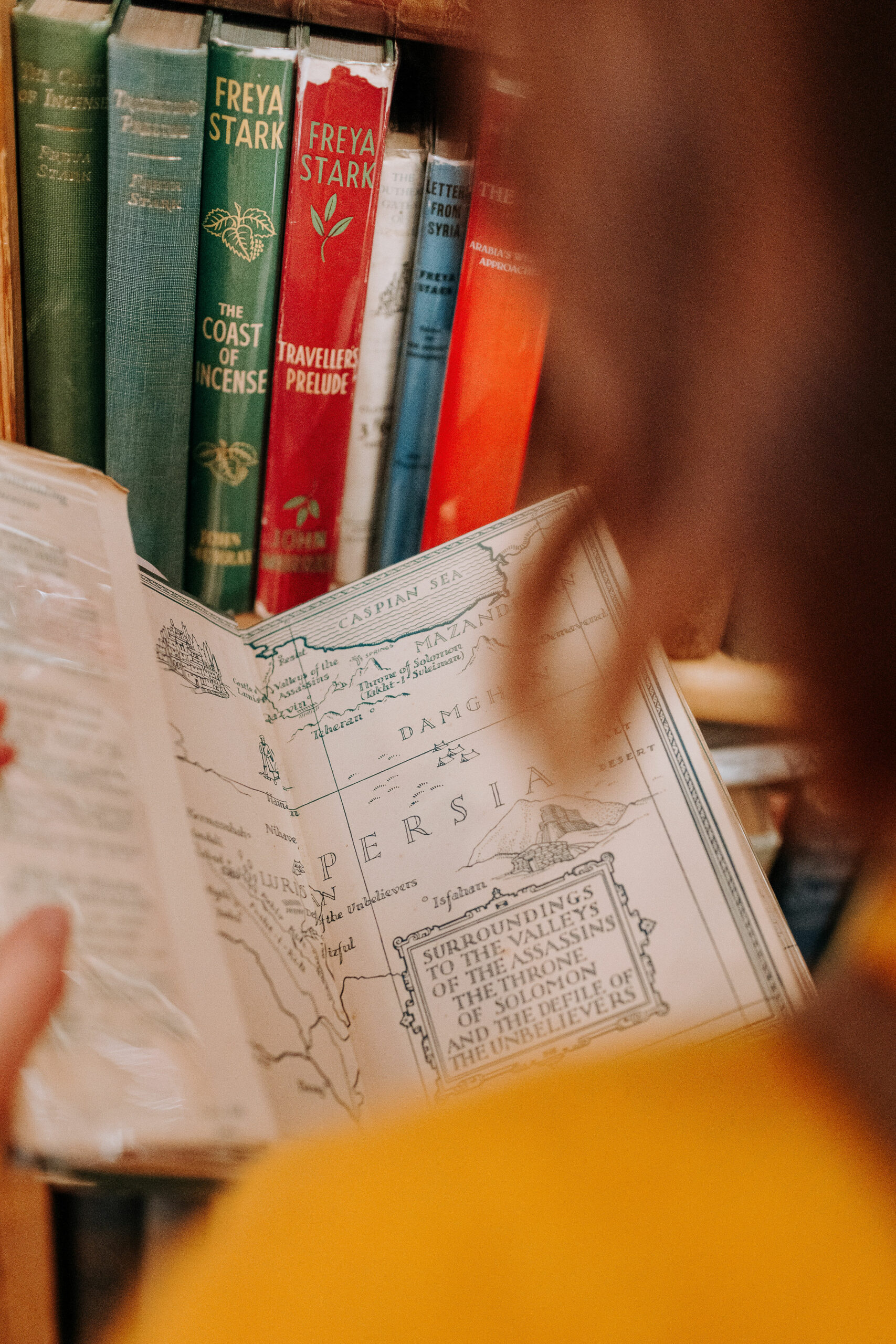
Don’t Underestimate the Value of Dedicated Facebook Groups
Regional overland Facebook groups can be invaluable as they form a global network of people with up-to-date information on trail conditions, border crossings, visas, and more. If managed well by moderators, the pros of these groups include finding container shipping partners, connecting with other overlanders for meetups, accessing help for recovery or parts, and the never-ending stream of inspiration relating to that particular region. Some Facebook groups also have affiliated WhatsApp chats for those on the ground.
Nearly a decade ago, we found shipping partners via the Pan-American Travelers Association Facebook group, which cut the costs of a container to send our 1990 Toyota Pickup from Panama to Colombia. Navigating the logistics with another couple took much of the stress off, and thankfully, our newfound friends spoke much better Spanish than we did. More recently, I’ve leaned heavily on the Morocco Overland Facebook group both before and during our time in the country, and it contains a wealth of information about nearly every topic under the sun, from temporary import procedures to fabulous not-to-be-missed camp spots.
Of course, Facebook groups aren’t immune to folks who over-confidently take to the megaphone, spreading inaccurate information. Take what you learn with a grain of salt, use the search function heavily, and try your best to fact-check by using multiple resources—especially for visas, carnet de passages, temporary import permits, country-by-country rules and regulations, and the difficulty level of off-pavement tracks and trails.
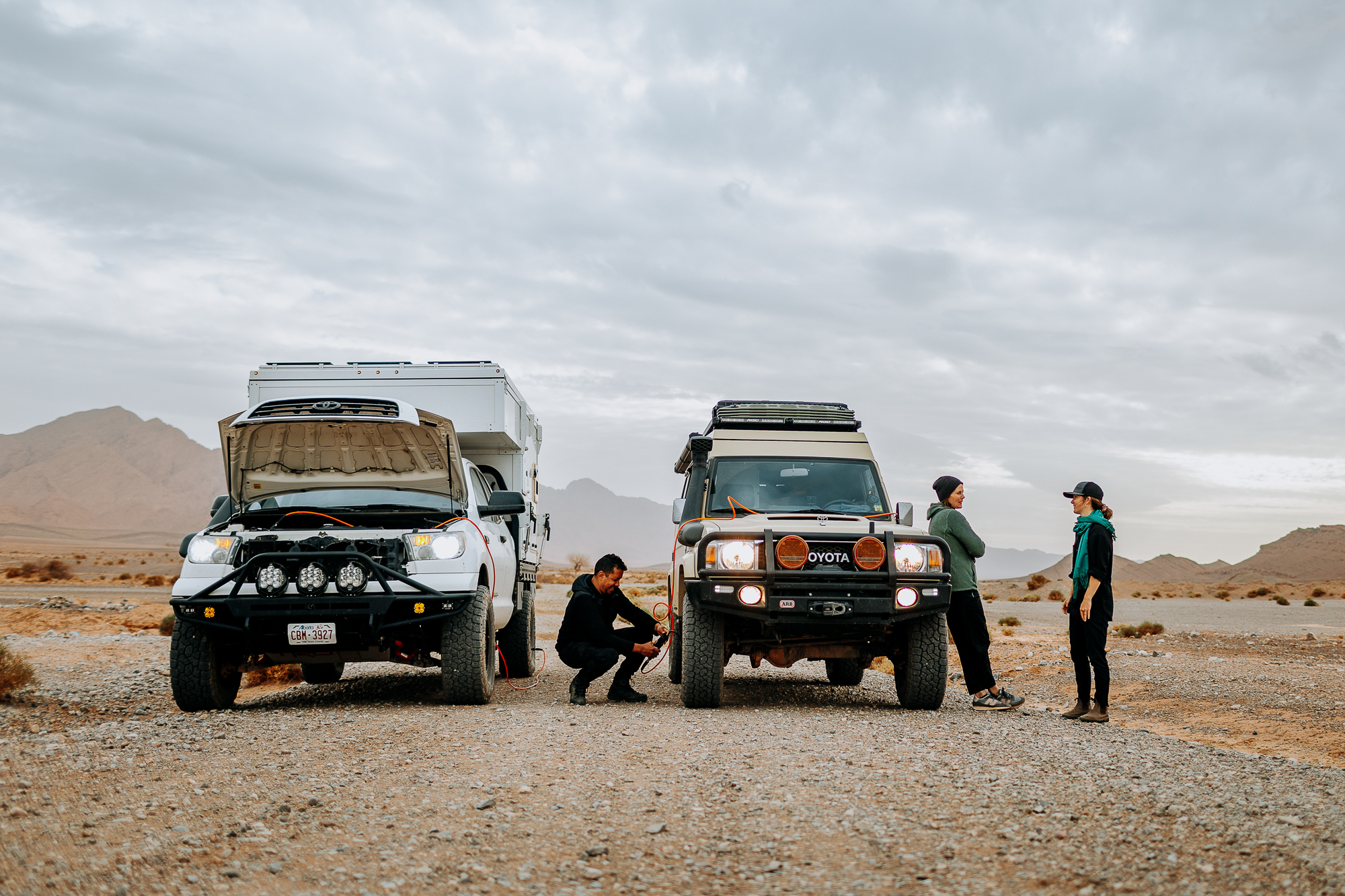
Go Deeper By Participating in Community Events and Experiences
If you travel by vehicle, 9 times out of 10, you’re just passing through. A large part of overland travel involves witnessing what happens between places, and that can be a unique and special experience. Occasionally, however, we stop temporarily and connect. We shop for groceries, say hello to those around us, get a haircut, take a class, or visit the gym. As these are mere fleeting moments, sometimes we desire a deeper connection.
I love the idea of visiting unfamiliar places by attending a soccer (or football) game, enjoying a concert or festival in the city, or joining a local hiking club for their weekly mountain grind. There’s always something to do, from entering a 10-kilometer race to lending a hand at a beach cleanup. Perhaps your trip revolves around attending a seasonal event or festival, but you choose an off-pavement route to get there. It doesn’t have to be fancy, expensive, or international—staying with a friend along the way automatically introduces you to a different world.
Keep your eyes peeled for event posters tacked to bulletin boards at cafes, announcements in local newspapers, or ask around while you’re filling up on fuel or at the grocery store checkout. During a trip to Malta, we learned how to make traditional pastries called pastizzi in the home of a local woman in Valletta through Airbnb Experiences. The cooking lesson offered a perfect opportunity to ask questions about Maltese culture and history. We also attended the busy Festa Frawli (highly recommended by locals) in Mgarr. This annual strawberry festival brings farmers, chefs, artists, and musicians together to celebrate spring and taste all the delicious strawberry-themed drinks, desserts, and more.
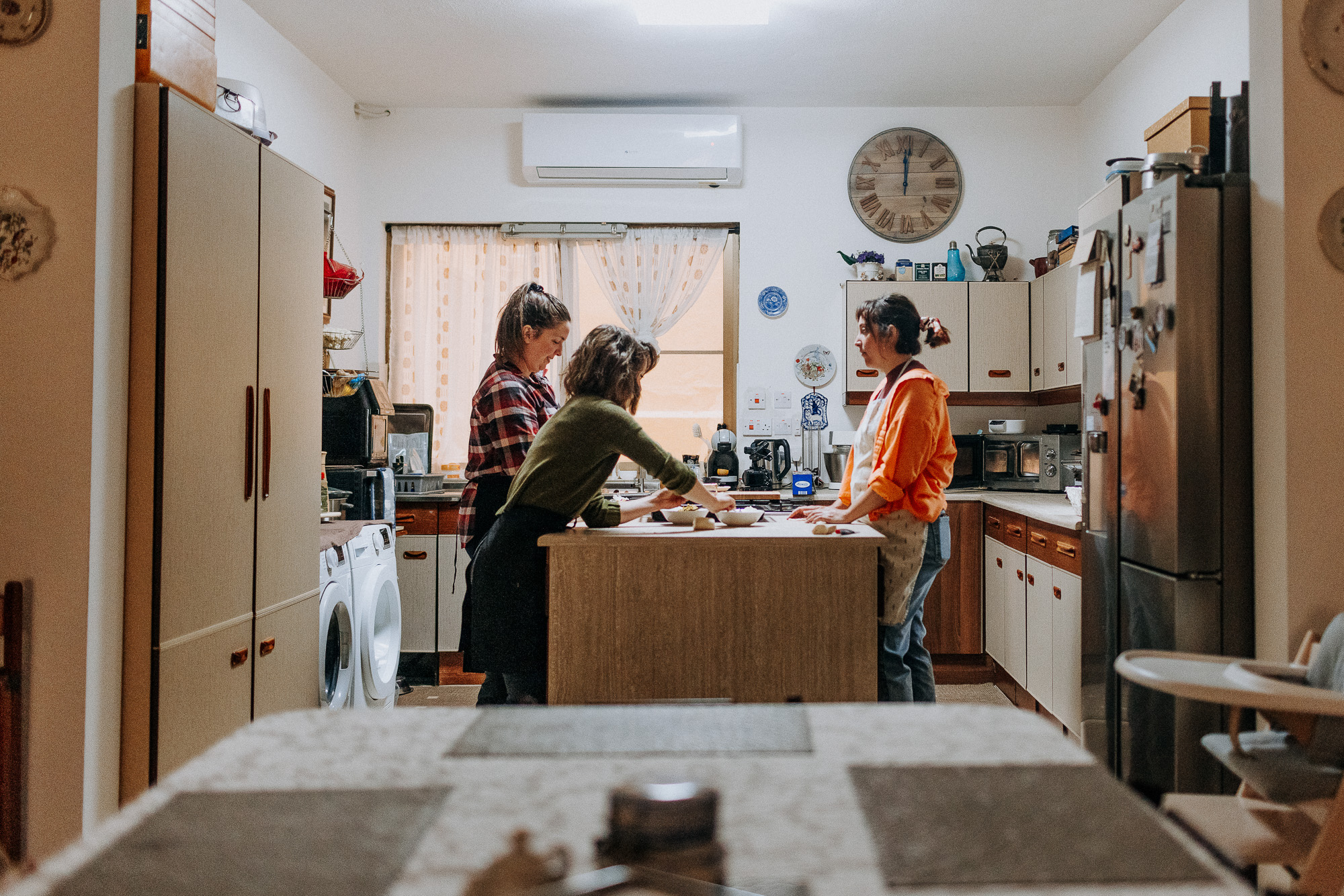
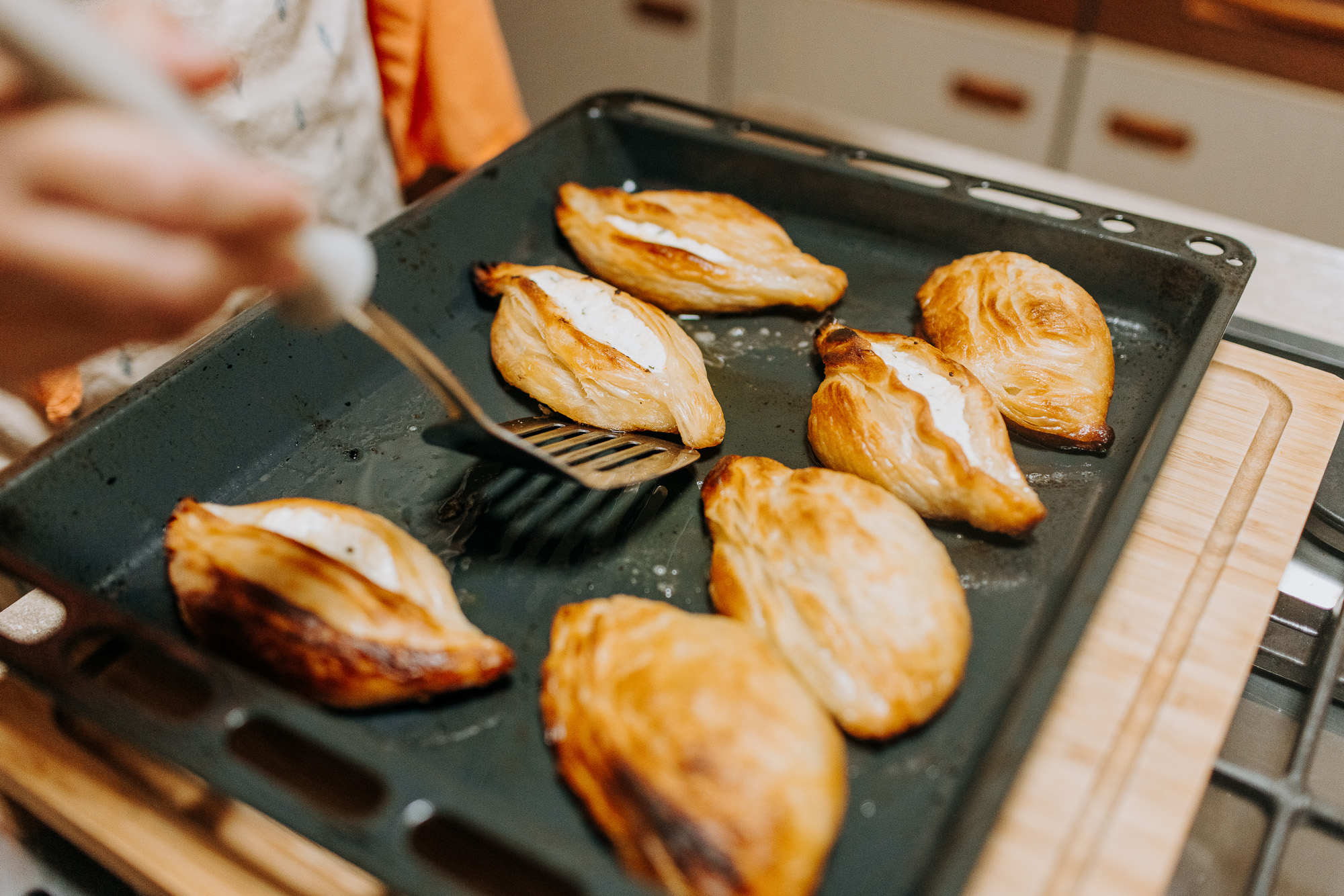
Choose Your Must-Dos and Connect the Dots
Once you’ve figured out where you want to go, when, and for how long, a rough route can be sketched out by identifying your “must-dos.” These are your top priority stops, experiences, and campsites, and often revolve around what you, your family, or a group of friends want to see and do. Possibilities are endless—mountain bike trails, 4×4 tracks, fly fishing spots, monuments, natural landscapes, ghost towns, ruins, a sparkling swimming hole, or a particular taco stand, street food vendor, or hamburger joint. The sweet spot for me blends a wide variety of activities, experiences, tracks, trails, and camps and depends greatly on the chosen destination.
The next step is connecting your must-dos with roads, trails, or tracks, which can be as simple as plugging your destinations into Google Maps or as challenging as following multiple GPS devices to figure out the route less traveled. In parts of Namibia and South Africa, I used a mix of the Gaia GPS app, the Tracks4Africa paper maps and app, the Garmin Overlander device, and downloaded GPX tracks to navigate parts of our route. For North American pursuits, many use onX Offroad to plan and execute overland trips.
For planning purposes, I’ve used Gaia GPS and Google Maps to plug in dirt tracks, restaurants, campsites (wild and established), points of interest, fuel stations in remote areas, and coffee shops—the list goes on. Using labeled icons to distinguish each waypoint is something dreams are made of for visual learners such as myself. Other helpful tools are the Excel spreadsheet and Google Calendar. However you plan, it has to work for you or involve the crew you’re traveling with. If it’s a family trip, invite the kids into the research and planning process. Communicate with each other about The Plan and check in frequently to talk about where you are in the world and where you’re going.
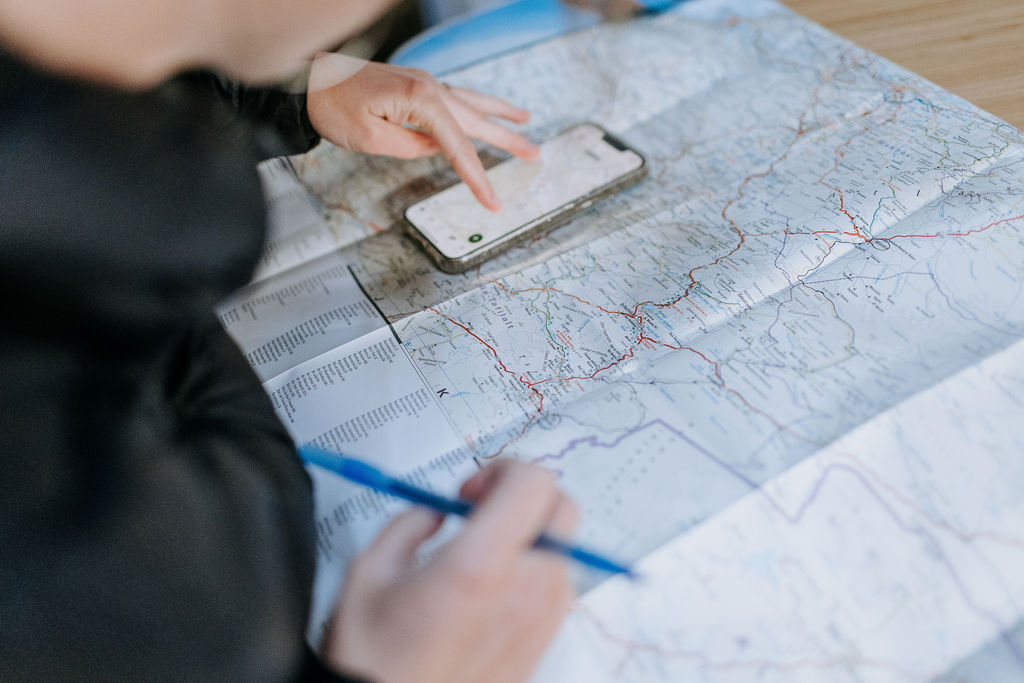
Know That Priorities May Shift When You Hit the Road
Although researching, organizing, and creating The Plan is one of my favorite aspects of overland travel, eventually, you have to take what you’ve learned and move forward into the unknown. This is where expectation management comes into play and where the magic of research collides with reality. The Plan is one that you hold loosely because, undeniably, you can’t predetermine the outcome of everything. You can’t foresee what will happen, what a new country will be like, or the challenges that will arise—you can only do your best with the information you have.
How much time you have and how many miles you’re taking on will determine your pace. On long stretches of dirt spanning several days, I’ve found it helpful to calculate daily kph averages to estimate the next day’s timeline. Of course, this is an ever-changing figure, but this method has been consistent for me in Southern Africa and Morocco. Perhaps I’m overthinking things here, but sometimes it’s nice to know if you’ll make it to camp before sunset or have some wiggle room to enjoy a leisurely lunch on the trail.
Last month, we sailed from Spain on a ferry boat bound for Morocco. We departed hours later than anticipated and cleared customs after dark while a wind storm with 100-kph winds surged through the Strait of Gibraltar. The Plan was to drive to the Blue City of Chefchaouen, where a pine-filled campground would have been our home for the night. Instead, we camped at the port with a dozen other RVs, caravans, and other rigs swayed under palm trees and metal ripped from the nearest signpost, reminding us of the golden rule of overlanding: be adaptable and you’ll (almost) always have a great time.
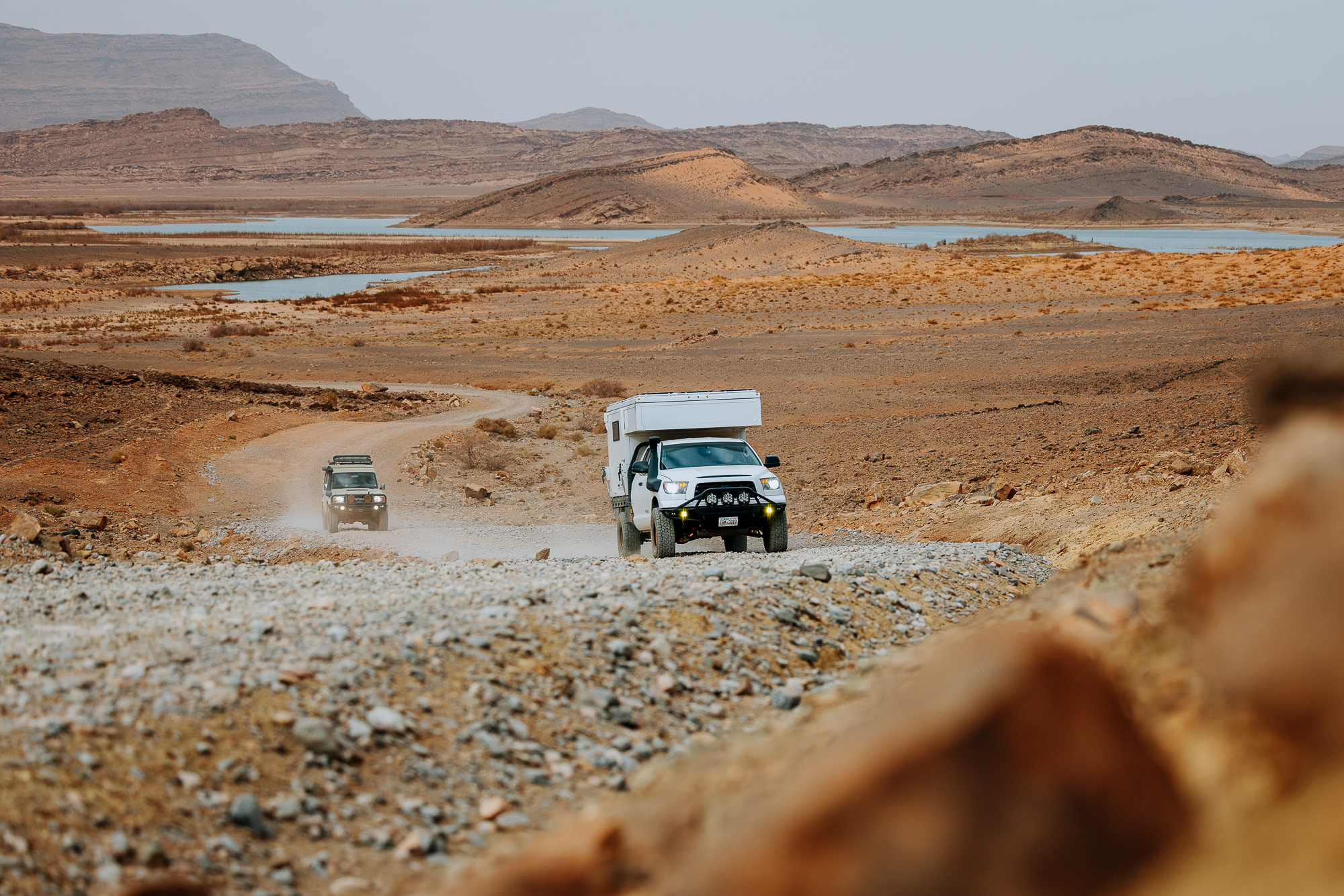
Read more: 10 Things to Know About Overlanding Spain
Our No Compromise Clause: We do not accept advertorial content or allow advertising to influence our coverage, and our contributors are guaranteed editorial independence. Overland International may earn a small commission from affiliate links included in this article. We appreciate your support.


